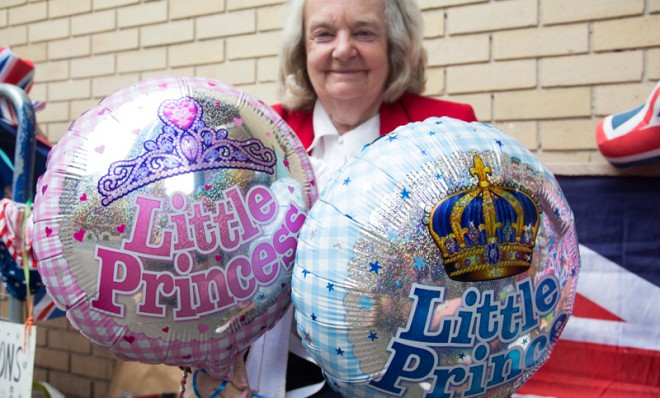The royal baby could be a royal boost to Britain's economy
The unborn scion is already having an impact on affairs of state


A free daily email with the biggest news stories of the day – and the best features from TheWeek.com
You are now subscribed
Your newsletter sign-up was successful
Baby fever reached peak status this morning with the news that the Duchess of Cambridge, nee Kate Middleton, had gone into labor.
The child that could one day rule Britain — the baby will be third in line to the throne — could also have a more immediate impact on the nation by delivering a brief but significant jolt to the economy. The U.K.-based Centre for Retail Research estimated that the royal baby, like some supply-and-demand version of Kal-El, would single-handedly pump an additional $380 million into the beleaguered economy.
"This is a good news story and there really is no downside," Joshua Bamfield, CRR's director, told Reuters last month. "With the birth coming in July, people will have time to get involved, and that means additional spending."
The Week
Escape your echo chamber. Get the facts behind the news, plus analysis from multiple perspectives.

Sign up for The Week's Free Newsletters
From our morning news briefing to a weekly Good News Newsletter, get the best of The Week delivered directly to your inbox.
From our morning news briefing to a weekly Good News Newsletter, get the best of The Week delivered directly to your inbox.
Likewise, Howard Archer, an economist with IHS Global Insight, said this week that the economic impact would be limited but "overwhelmingly positive."
One area in which people are expected to ramp up spending is on party supplies. Bamfield estimated Britons would spend nearly $92 million on booze to celebrate the birth, plus another $38 million on party food. Because really, it wouldn't be a royal baby party without this lifelike royal family pizza.
However, the lion's share of the spending — some $240 million, by Bamfield's estimate — will go toward the bottomless pile of novelty tchotchkes churned out to commemorate the birth.
Have you considered these limited edition royal cat family figurines (only 450 in stock!) for just $1,600 a set? Or perhaps you would be more interested in a $260 royal baby paperweight, or this slightly more expensive, apparently armless bear? There are also a handful of china plates going for $25,000, in both pink and blue, for royal baby fans with a more refined palate.
A free daily email with the biggest news stories of the day – and the best features from TheWeek.com
The Royal Collection Trust, which funds the upkeep of the royal family's palaces, is even selling baby merch of its own.
While impressive, the projected economic stimulus would pale in comparison to the royal wedding, which was estimated to have injected $3 billion into Britain's tourism industry. Archer said he expected there to be far fewer street parties like those that accompanied the wedding and the Queen's diamond jubilee, meaning there would be less tourism and general revelry.
Don Coursey, a University of Chicago economist, was even more skeptical about the supposed economic impact of the birth in an interview with the Wall Street Journal.
Look down the list of potential impacts, Mr. Coursey says. Unlike, say, the Olympic Games, there are no big public works projects or infrastructure upgrades associated with the new member of the royal family. Tourism effects are likely to be minimal — this is an event best experienced on TV (or perhaps Twitter), not in person. And as for spending, where are all those silly Union Jack hats and bottles of bubbly coming from? Mostly overseas — meaning the Babywatch 2013 could actually widen the trade deficit. [Wall Street Journal]
And who knows? Any uptick in consumer spending could always be offset by all the productivity lost to people neglecting work to breathlessly watch a live stream of the hospital where Middleton will soon give birth.
Jon Terbush is an associate editor at TheWeek.com covering politics, sports, and other things he finds interesting. He has previously written for Talking Points Memo, Raw Story, and Business Insider.
